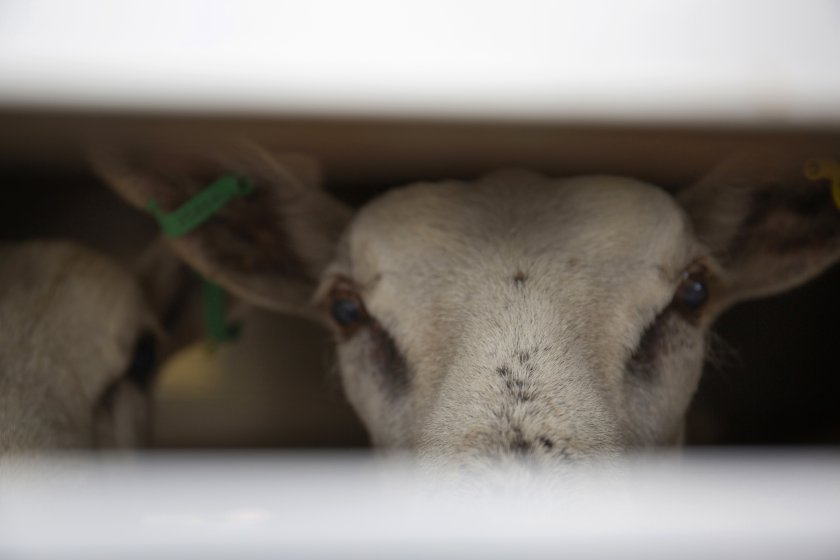UK to end live exports as government unveils new bill

The UK will become the first European country to end live exports as the government sets out new powers to boost animal welfare.
The second Animal Welfare Bill has launched on Tuesday (8 June) as part of the government's ambition to 'protect pets, livestock and wild animals'.
The new bill seeks to improve welfare standards through a wide range of measures, including new powers to clamp down on livestock worrying and a live export ban.
It will also permit for an increase in police powers to tackle puppy smuggling.
Defra said it was 'committed' to improving the UK's 'already world-leading standards' by delivering reforms outlined in the Action Plan for Animal Welfare.
On live exports, the department said the practice caused farm animals to experience 'distress and injury' due to 'excessively long journeys during export'.
"We will become the first European country to end this practice," Defra explained today.
"EU rules prevented any changes to these journeys, but the UK government is now free to pursue plans which would see a ban on the export of live animals for slaughter and fattening."
But farming groups have warned that any significant regulatory changes could potentially have a major impact on the UK food supply chain.
The Farmers' Union of Wales (FUW) has said that a live export ban could 'cut off an essential lifeline' for sheep producers.
President Glyn Roberts: “We fully appreciate people’s concerns about live exports, but we must bear in mind that the EU has legal welfare standards which are the highest in the world, and these apply both here and on mainland Europe."
According to Ruminant Health & Welfare (RH&W) – whose members represent the breadth of the supply chain – a ban on live exports would have far-reaching consequences.
It urged the government to build regional abattoir capacity in response: "Defra should, if a trade ban is implemented, take responsibility for the impact on businesses," said chairman Nigel Miller.
The new bill will also give powers to the police to provide greater protection to livestock from out-of-control dogs.
It will also extend this protection to other species such as llamas, ostriches and game birds.
Figures show that the cost of dog attacks on livestock increased by over 10% to £1.3 million last year as the pandemic saw a surge in people visiting the countryside.
Defra Secretary George Eustice said: "The Kept Animals Bill will bring in some of the world’s highest and strongest protections for pets, livestock and kept wild animals.
"As an independent nation outside the EU we are now able to go further than ever on animal welfare by banning the export of live animal exports for slaughter and fattening, prohibiting keeping primates as pets and bringing in new powers to tackle puppy smuggling."
Today’s announcement is the second piece of legislation introduced in the last month aimed at boosting animal welfare.
It follows the government’s decision to formally recognise animals as sentient in law through the Animal Welfare (Sentience) Bill which was introduced to parliament last month.
As well as the new bill, the government is set to announce further reforms this year related to microchipping, pet theft, farm animal welfare and tackling wildlife crime.








